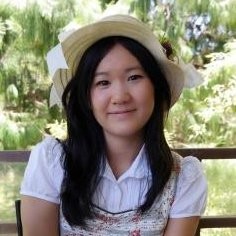Please tell us about your career pathway to date (positions and institutes).
I completed my Bachelor of Science (2012) and Master of Nutrition and Dietetics (2014) at The University of Sydney, and returned for my current Doctor of Philosophy (2021-). I became interested in research when working on and publishing my postgraduate research thesis – I thank A/Prof Fiona O’Leary for making that happen! I worked as a research assistant in assorted health and nursing research projects across Australian Catholic University, The University of Sydney and Deakin University – and it was my last major role in childhood obesity research which led to an idea that became a PhD project.
What is your main research interest?
My interests are in mixed methods research – happily, my PhD work combines a range of approaches, including secondary research, qualitative data collection with stakeholders, quantitative analysis with a birth cohort, and will hopefully cumulate with a co-designed intervention. As a part-time research assistant, I support projects that utilise my strengths in literature reviews and longitudinal data collection with REDCap databases.
The current research that drives me is my PhD work, on using messages and education around bottle feeding and formula feeding to prevent tooth decay and unhealthy weight risk together.
How do you explain your current research/job to friends and family?
I explain tooth decay from bottle feeding as a focus of dental research, and unhealthy weight gain from formula feeding as a focus of obesity and nutrition research – and the two remaining in their disciplinary silos without addressing each other, when bottle feeding can be a modality of overfeeding and foods/drinks in bottles can increase unhealthy gain risk. An important talking point will always be about prevention before chronic disease progression: untreated tooth decay in baby teeth will lead to tooth decay in adult teeth, and behavioural risk factors for unhealthy weight gain are established from childhood.
What are the main barriers you encounter/experience when conducting research?
My main concern is on what a researcher can change, especially when it comes to the broader policy and social environment – my goal is to create an intervention, co-designed with stakeholders, to prevent tooth decay and unhealthy weight gain with messages and solutions meaningful for parents and carers. Tooth decay and overweight/obesity can be prevented through daily household behaviours – but it’s made harder by a cariogenic and obesogenic food environment, including difficulty in affording, purchasing and preparing healthy food, and ease of access to preventative dentistry.
Given unlimited funding, what would your dream research project be?
My dream research project would be informed by the Child Health Action to Lower Oral Caries and Obesity (CHALO) project in New York (https://clinicaltrials.gov/study/NCT03077425) and the Nurture Early for Optimal Nutrition (NEON) project in London (https://www.isrctn.com/ISRCTN10234623) – these are primary and community health care projects, with key focus on co-design and working with stakeholders, using culturally-informed and strengths-based messages that address parents’ and carers’ key concerns with feeding and dental health, and engagement and delivery by community facilitators and cultural support workers.
Contact
If you would like to get in touch with Heilok, here are her X and LinkedIn profiles.


